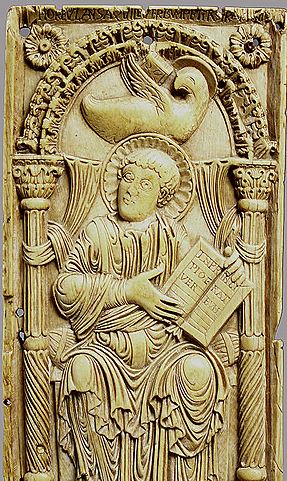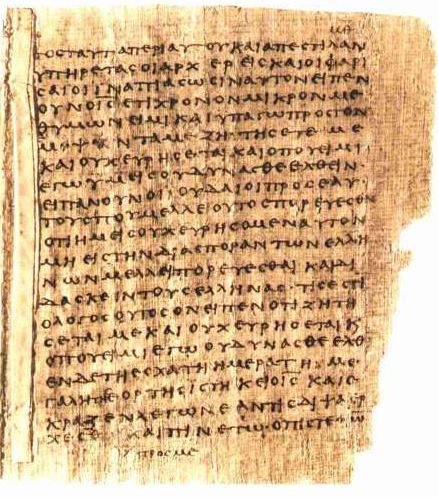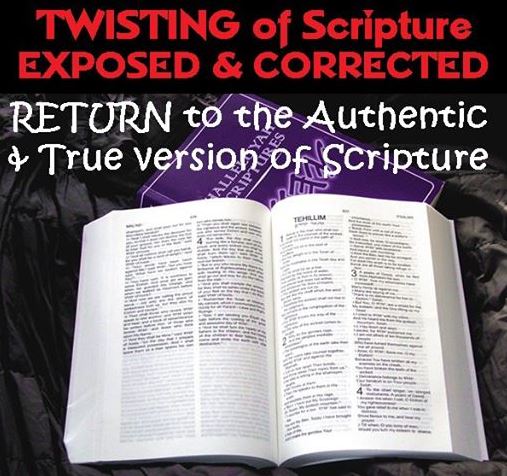 One of the many areas of concern for Christians is whether or not God is okay with them serving in the military. I remember when my oldest son, at the young age of 14, became enamored with the military. His whole desire was to serve his country in the armed services as soon as he was old enough to enlist. However, when he became of age and expressed this earnest desire to preachers and church leaders, they did all they could to discourage him from joining the military. One preacher even went so far as to have a church service where he made a former military man (because he enlisted after the preacher told him not to many years prior) apologize publicly for being in the military as if it was a huge shame to have done so, and a dishonor to God! This preacher gave the congregation the impression that this soldier had dishonored and disobeyed God. This wasn’t a dishonor to God. What happened was the man did not listen to the preacher. It’s all about control here. How sad that this man was made to feel that his years of service and sacrifice were not pleasing to God and that God could not use him because of it.
One of the many areas of concern for Christians is whether or not God is okay with them serving in the military. I remember when my oldest son, at the young age of 14, became enamored with the military. His whole desire was to serve his country in the armed services as soon as he was old enough to enlist. However, when he became of age and expressed this earnest desire to preachers and church leaders, they did all they could to discourage him from joining the military. One preacher even went so far as to have a church service where he made a former military man (because he enlisted after the preacher told him not to many years prior) apologize publicly for being in the military as if it was a huge shame to have done so, and a dishonor to God! This preacher gave the congregation the impression that this soldier had dishonored and disobeyed God. This wasn’t a dishonor to God. What happened was the man did not listen to the preacher. It’s all about control here. How sad that this man was made to feel that his years of service and sacrifice were not pleasing to God and that God could not use him because of it.
Many preachers, in the cult I came out of, taught that if a person joined the military, they would be contaminated by ungodly living and vices that would make them useless to God. This is what they expressed to my son. Really? Is God that SMALL that HE is not powerful enough to bring about good from the life of a sinner if such a thing should occur? Is every person that joins the military without self-restraint or morals? (That’s basically what they are saying about those who do join.) Who is MAN to decide who God can or cannot use for his purposes? God did not give preachers the authority to control the lives of others with their opinions and doctrines. God gave the Holy Spirit to individuals to guide them, not church leaders. Sometimes, people forget that.
This issue of serving in the military has been an ongoing issue from the beginning with Christians. As a result, many zealous Christians, thinking they were standing for God, brought shame, reproach and harm upon those who served with them.
During the early centuries, Christian leaders did everything they could to discourage believers from enlisting just as they do today in some religious sects. They even went so far as to instruct new believers who were already serving to abandon their service. Why? Did not King David fight many wars? Did not Saul fight many wars? Did not the early Jews fight wars to rebuild the walls of Jerusalem or to conquer Canaan? Was God angry with them for doing so? Because they were kings and leaders, did it exempt them in some way from God’s anger or from being a dishonor to God? Does serving a non-Christian King give one the right to refuse to be called into service even though God is the one who determines those in authority and commands us to honor them? Does serving a Christian King make fighting and serving okay? Did not God command the Jews and Kings to wipe out entire people’s? If so, then why would God be against military service, especially in time of war?
Sadly, the reasons given to Christians for not serving in the military, have been fabricated and twisted by religious leaders in order to control them. It has nothing to do with God. It has to do with control. When church leaders were telling my son that it was not God’s will for him or anyone else to serve, what right did they have to say such a thing? Think about this: If God puts it on the heart of a man or woman to serve their country, who are these religious leaders to tell them it is not God’s will for them? God has given his spirit to each individual to guide them in performing his will in their life. For a religious leader to tell others what God’s will is for them is a usurping of the Holy Spirit’s position in the life of a believer! In the end, this type of teaching about serving in the military will only bring the same consequences that it brought the early Christians. Let’s see how it affected one early Christian and those he served with in the military. My words are in brackets in these passages and all bolded emphasis is mine.
“Do we believe it lawful for a human oath to be superadded to one divine? for a man to come under promise to another master besides Christ, and to abjure father and mother and all nearest kinsfolk whom even the law has commanded us to honour and love next to God Himself? Shall it be held lawful to make an occupation of the sword, when the Lord proclaims that he who uses the sword shall perish by the sword? Shall the son of peace take part in the battle, when it does not become him even to sue at law? [These are all excuses religious leaders gave early Christians to keep them out of military service.] . . . If faith comes later and finds any pre-occupied with military service their case is different; and yet when a man has become a believer, and faith has been sealed, there must be either an immediate abandonment of the service, which has been the course with many, [God does not command this] or all sorts of quibbling will have to be resorted to in order to avoid offending God; or last of all, that same fate must be endured for Him which non-combatant citizens are ready to accept.”
In the same tract he relates an instance of refusal, not indeed to enter the army, but to wear the laurel wreath of victory. The bounty of the Emperors was being dispensed in the camp; the soldiers were approaching crowned with laurel; some of them were Christians. “One, more steadfast than his brethren (who imagined that they could serve two masters), his head alone uncovered, the useless crown in his hand, was nobly conspicuous. [This is what many Christian zealots do. They are “nobly conspicuous” drawing attention to how separated, righteous, noble and holy they are in comparison to others.] He was presently marked out, and all began to jeer him while at a distance, and to gnash upon him when he came near. [For the Christian, this treatment is worn as a crown of honor, showing others how noble he is to take persecution for his faith, not realizing that he is just being foolish in bringing persecution unnecessarily upon himself.] The murmur was wafted to the tribune, as the soldier was leaving the ranks. The tribune stopped him. ‘Why do you not wear your crown like the rest?’ ‘I have no freedom to do so,’ [Must be a religious, unspoken rule.] he answered. Being pressed for his reason he confessed, ‘I am a Christian.’ The case was considered by the officers and voted upon, and it being decided to remit the judgment to a higher tribunal, the offender was conducted to the prefects. Immediately he put off his heavy cloak, loosed his military sandals, gave up his sword, and dropped the laurel crown from his hand. [He is so prideful that he is willingly to throw down his life?] He was taken to prison, where,” adds Tertullian, “he awaits the white crown of martyrdom. [What about his family? He certainly is not thinking about them! That’s pretty self-centered. What is the reason he is going to die? What is the cause? Pride.] Adverse judgments,” continues the writer, “have been passed upon his conduct, as if he were headstrong and rash and too eager to die [Ya think?], because, in being called to account about a mere matter of attire, he brought trouble on the bearers of the Christian name; — he forsooth alone brave among so many soldier-brethren, he alone a Christian! [He wasn’t the only Christian. He was the only one brazen enough to be so foolish and, too proud to retract his words and humble himself.] So they murmured and were alarmed because the peace and immunity they had so long enjoyed was endangered.” [He endangered the safety of other Christians because of his attitude and foolishness.]
— Edward Backhouse, Early Church History to the Death of Constantine, pgs 111-113.
What this tidbit of history shows us is that a soldier, thinking he was serving God by refusing to wear the victor’s crown of laurel, ended up being a reproach to other Christians and endangered their safety as a result. Did he think that God would be against wearing the laurel? Seriously? Sounds like a bit of SELF-righteousness and pride to me. Little behaviors and attitudes such as this are the cause of persecutions for Christians. What many do not realize is that sometimes, there are those that are brainwashed into believing things that God did not say and, by example in scripture, did not require of anyone. How many Christians bring upon the name of Christ a stench because they are over zealous in their rules, self-righteousness and separation? You have to be really good at twisting scripture to convince someone that wearing a victor’s crown is wrong because you are a Christian. You have to be really stupid to die for that belief. Could this young man simply have “put his foot in his mouth” and then was just too proud to retract it?
It takes some genuine humility and unconditional love toward those who are not Christian, to truly behave the way God would want and, to be the example to them that God would want. This soldier could have spared his life if he would have just humbly put the crown on his head and apologized. Humility and unconditional love of others will cause a person to look to the benefit of others and do all they can to not be a rock of offense to them. If you are not sure about some rule or doctrine, humble yourself until you can do some research on it! Don’t be as foolish as this soldier was.
Before we take to drawing a battle line in the sand regarding service in any area, think about the perception you are giving off to others. Is it offensive? Are you, by your actions and words, letting others know loudly and clearly that you are holier and more righteous than they are because of your faith? Will this perception bring any of them to Christ or, turn them away? (Just remember that there are non-Christians that have more ethics and morality than some Christians.) This attitude is repugnant to others and gives off an air of judgmentalism. Many Christians, like this lone soldier of the first century, will be persecuted because they bring it upon themselves through foolish attitudes, thinking and behavior.
This early Christian wasn’t refusing to serve, he was refusing to wear the victor’s wreath upon his head – something that is no offense to God! Is serving in the military wrong for the Christian? No. If God leads you to do so, then do it. It doesn’t matter what church leaders say about it. Let the Holy Spirit guide you, not men. Clothe yourself in humility and unconditional love and you will never be a rock of offense to others, bringing reproach upon yourself or God, whether in the military or not. What some Christians forget is that soldiers sacrifice their lives and families so that they can enjoy safety and freedom. How repugnant for those who now serve, or have served, to say that God is against it and that they will be a bad influence on a Christian that decides to enlist and serve. It’s not the service that makes the difference with God. It’s the thoughts and intents of the heart. For religious leaders in the cult I came out of to imply that everyone who joins the military will be corrupted and be of no use to God, is also implying at the same time, that those already in are corrupt and have no moral foundations! By default, they judge those in the military as a whole, paint them with a broad brush, and then they themselves complain when they get judged by unbelievers and painted with the same broad brush. The only difference is that Christians call it “persecution.” That certainly sounds more “noble,” doesn’t it?
Service in the military does not corrupt people — poor character, lack of ethics, lack of morality, PRIDE, love of money, self-centeredness, a thirst for power and control of others, loving conditionally instead of unconditionally — these are what corrupt people.








